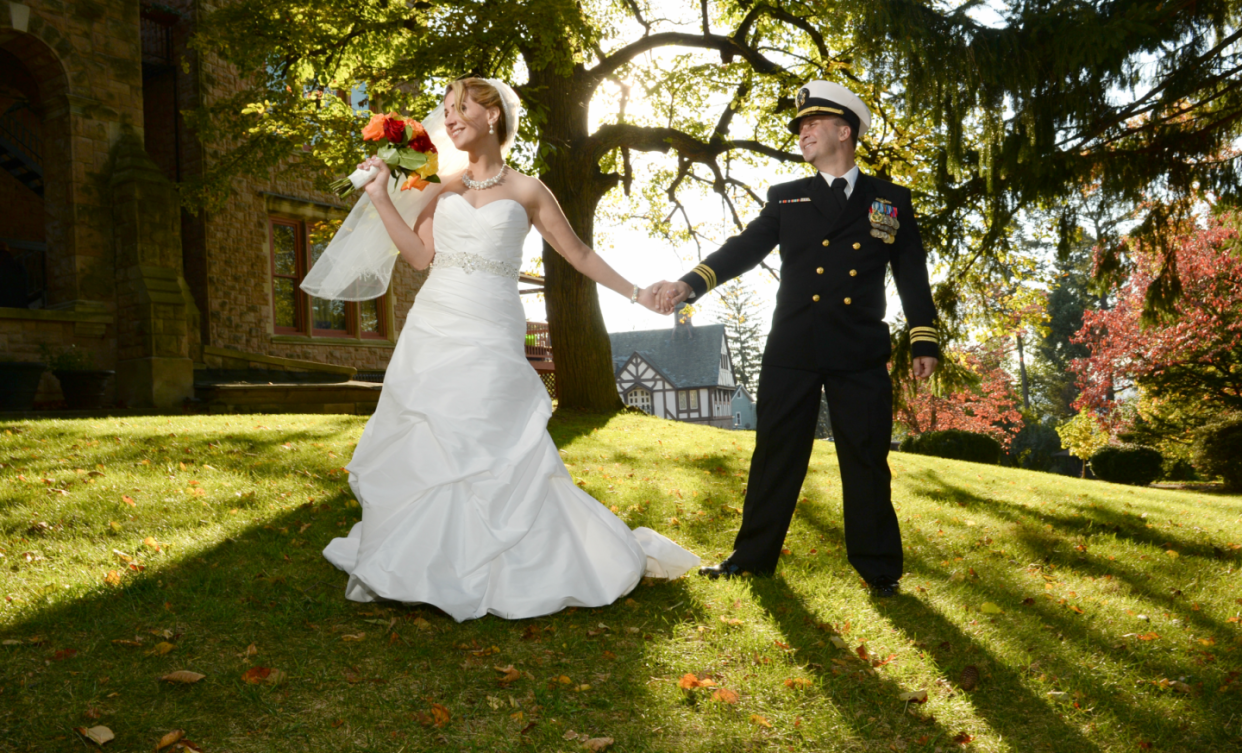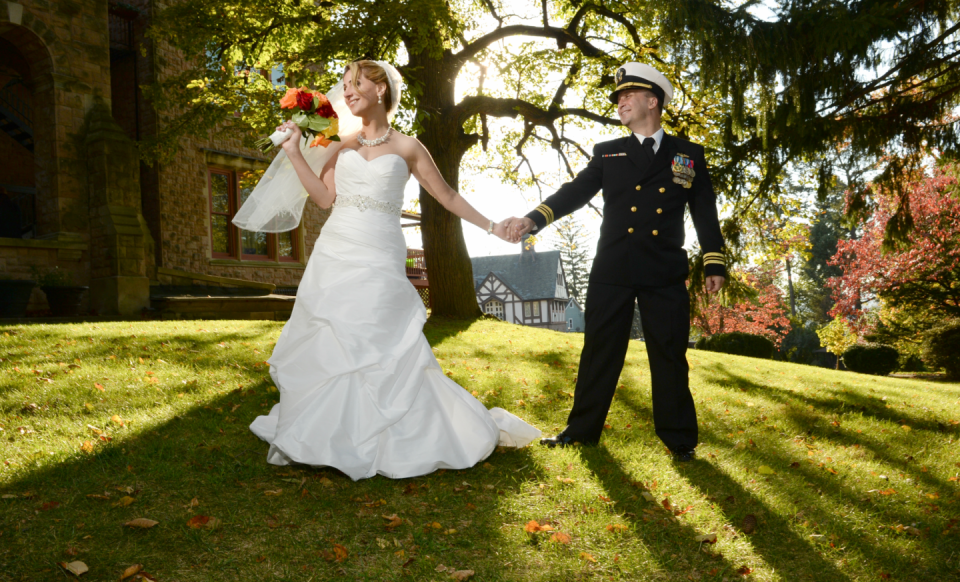I'm the Kind of Refugee Trump Wants to Ban


More than a decade ago, Farah Marcolla was tortured for helping U.S. troops in Iraq. She and her father had started an engineering firm to build security barriers and helipads for American military forces, and supplied security equipment to U.S. bases there. But one night in November 2006, Al Qaeda punished them for supporting the Americans.
Marcolla and her sons fled their home and, after years of paperwork, interviews, and waiting, they came to the U.S. as refugees in 2012. Her family - her parents, three sisters, and their kids - remains in Baghdad, hoping to get to the United States as well. President Donald Trump's sweeping executive order limiting immigration from seven Muslim-majority countries and halting any refugee arrival for 90 days, she says, will make that much more difficult.
Marcolla has no regrets about what she did for the United States. But she questions the wisdom of such a blanket order, one that will prevent even those who risked their lives for this country from finding safety here.
I was born and raised in Babylon, Iraq, in a middle-class family. My parents were engineers. We were definitely against the regime of Saddam Hussein and everything he stands for.
When 2003 happened - the freedom of Iraq, or the war in Iraq - my father and I supported the U.S. military, starting an engineering firm. We were consultants with the U.S. military.
I believed in the freedom of Iraq. I believed in the mission. My family was tired of Saddam's regime. The poverty. We wanted a change. We believed in the support of the Americans to the Iraqis. All of what they say on TV - to help the Iraqi people develop and make it safer, to make a new future for Iraq - I believed that.
In 2006, we got attacked by terrorists inside our home [in Baghdad, where we’d moved]. We were just getting ready to start the evening and have dinner. Almost 40 people arrived to the house, with all kinds of weapons. They took my husband and my guard and the driver for my father. And my father. For two hours, they were searching, and they were torturing me and my father and my husband - because we supported the U.S. military.
My husband and the driver, they were crying, screaming for their lives. And then I heard shooting. Like 10, 15 times. And then quiet. They had murdered my husband.
That was my second marriage. The father of my two boys had already died in a car accident in Iraq, in 2003. The husband who died that night, we were just married for a month. I remember thinking, Now my boys don’t have a father and they're not going to have a mother also.
[The terrorists] took me into the bathroom and locked me in. They were talking on a walkie-talkie to somebody outside waiting for them. And they called him "sir." "Sir, what do we do with the woman?” And he said, "Kill her." And then he said, "No, leave her." So they left me. It was a miracle.
My father was released after five days for ransom. We sold everything we had to free him.
[After that night,] I talked to the U.S. military: "I need your help. I have nowhere to go. I cannot go back to the same home." They reviewed my case and gave me a piece of land inside Camp Victory [the military base in Baghdad, Iraq]. And I lived there.
I first applied for the special immigrant visa [SIV] to America in 2008, after my father's kidnapping and the murder of my husband. I submitted my papers in 2008 and then I got my first interview in 2010. During the interview, I had to do a medical check with me and my kids to see if we're good, that we don't have any diseases or anything to infect Americans. And I passed that. I submitted all my paperwork.
[Throughout the application process,] I had, like, five to six interviews. Some were very short, about our life and what we were going through. And some questions were, kind of, interrogation. They would repeat questions. "Is that your uncle, his name?" for example. And then two hours after, he would pull [out] the same paper: "That's your uncle?" I would say, “Yes, I already answered that, but it's OK. That's my uncle's name.” They'd mention a name of someone I had never heard of. "Do you know this person?" I would say no.
They told me, “We will contact you when your visa is ready.” Then they had no communication. Not the first month, the sixth month, the one year.
2011 was the last year for the U.S. military in Camp Victory. Everything was shutting down. And I knew I was going to go back to life in Baghdad - back to normal life, which is threats every day. I was being protected in the base but I was going to go back to normal life.
I was talking about that with a friend of mine, and I was sharing my fears. I was like, "What am I going to do?" And he connected me with IRAP, the International Refugee Assistance Program. Becca Heller, she was the boss. She emailed me: "Do you want to move to America? Let's help your paperwork." And I was very excited. I'd already sent in my paperwork but it was stuck in the embassy.
My SIV papers had been stuck for five years. IRAP expedited my case and I arrived in the United States in June 2012. I am a permanent resident.
I had worked with my [anchor], Michael Marcolla, in Iraq. Michael and I met [while he was serving in the U.S. military] at Camp Victory. [The State Department allows immigrants to list an “anchor” they’d like to be resettled near,] and Mike sponsored the boys and me.
I always thought he was such a nice gentleman. [Once I got to the U.S.,] we started to develop feelings for each other. I said, “I like you.” And he's like, “I love you and I want to help you. And I would be honored if you would marry me.” And I said, “Yes! I'm in America, I can say yes!” For the ring, he asked, “Do you like a circle cut,” or something. I'm like, “I don't even know. Whatever you get is fine!” [Laughs.] And we decided to do the wedding in 2013.
I am not against Mr. Trump. And I know he means well, and he wants to help secure America. I understand that. But when he talks about extreme vetting - we've already been through extreme vetting. Our life is an open book.
I was disappointed [by the executive action]. And I was scared I would not be able to see my family again, who are still in Baghdad. My dream of taking my father to a doctor, or showing him around the United States, or even to see the grandkids that he [helped raise]. When he sees them growing up in America, getting taller, becoming men, he just cries. He says, "I wish I could see them."
So when I heard this news, I was like, "That's it. The chance to see my family is very small."
I am taking my citizenship test next week. Feb. 6. Reading and studying the Constitution and the history of the United States is amazing. It’s something that I'd be proud of, to be a U.S. citizen.
I wish to tell the president, “Please think. We are family. We are the United States of America, not Separation States of America. Just like you have the right to see your family and make sure they are safe, I want that for my family as well.”
Being an American and coming to America, it’s not a right. It's a privilege. But I believe those people who put their life on the line for America, they deserve better treatment. They deserve a better decision.
I love and believe in the American Constitution, what we stand for. That is why I am here.
Follow Rebecca on Twitter.
You Might Also Like

